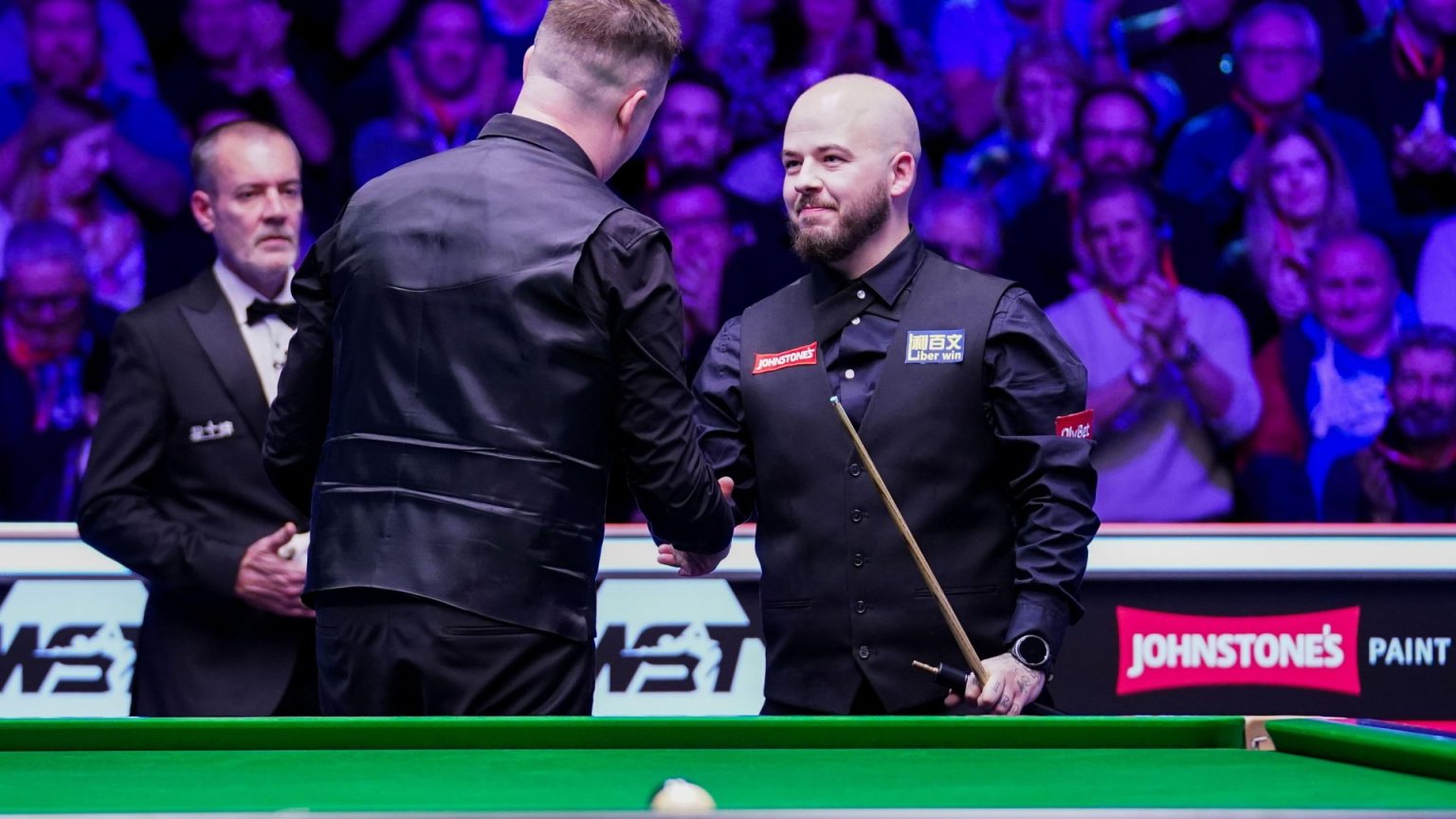Kyren Wilson, following his thrilling 6-4 quarter-final victory over Luca Brecel in the Masters, has openly questioned Brecel’s recent choice of chalk, suggesting it may be a contributing factor to the reigning world champion’s subpar form since his Crucible triumph. Wilson, visibly perplexed by Brecel’s decision to switch from the chalk he used during his World Championship win, expressed his frustration with the amount of chalk dust on the table and the increased risk of kicks, which he believes negatively impacted Brecel’s performance.
Wilson’s primary concern revolves around the excessive chalk dust generated by Brecel’s current choice, which he contends coats the cushions, balls, and cloth. This, according to Wilson, leads to unpredictable kicks when applying side spin, a phenomenon he experienced firsthand during their Masters encounter. He emphasized the mental toll this takes on a player, constantly anticipating potential kicks and disrupting the flow of their game. Wilson meticulously cleaned the white ball multiple times throughout the match to mitigate the chalk’s impact on his own performance.
While acknowledging the validity of Ronnie O’Sullivan’s preference for traditional chalk, a habit cultivated over decades, Wilson struggled to comprehend Brecel’s decision to deviate from the “Pyro” chalk that propelled him to the World Championship title. He attributed some of Brecel’s lost frames to kicks likely caused by the chalk, reinforcing his belief that the change is detrimental to the Belgian’s game. Wilson, expressing genuine concern for Brecel, whom he describes as a “great lad,” went so far as to offer unsolicited advice, urging him to revert to the Pyro chalk for the sake of his form.
In contrast to Wilson’s focused critique of Brecel’s chalk choice, the narrative takes a detour to explore Brecel’s whirlwind year following his unexpected World Championship victory. This period, marked by lavish spending, globetrotting adventures, and a generally celebratory lifestyle, offers a glimpse into Brecel’s post-championship experience. The account details his purchase of a £250,000 Ferrari, which he reportedly never drives, his travels with girlfriend Laura, and his indulgent dining experiences, all hinting at a potentially distracting shift in focus.
The narrative further highlights Brecel’s unconventional approach to the sport, emphasizing his lack of practice leading up to the World Championship and his previous winless record at the Crucible. The story of his lost Crucible-winning cue adds another layer of intrigue, suggesting a certain nonchalance towards the tools of his trade, which may or may not connect to his current form slump. This narrative thread, while providing an interesting backstory, contrasts sharply with Wilson’s meticulous attention to detail and his concern over the seemingly minor detail of chalk choice.
The juxtaposition of Wilson’s analytical focus on the technicalities of the game, particularly Brecel’s chalk usage, and the narrative of Brecel’s post-championship indulgence creates a compelling narrative tension. Wilson’s concerns about the chalk highlight a meticulous approach to the game, emphasizing the importance of even the smallest details in achieving success at the highest level. Conversely, Brecel’s extravagant celebrations and arguably less disciplined lifestyle, including the loss of his winning cue, suggest a different mindset, potentially contributing to his recent struggles. Whether the chalk is indeed a significant factor in Brecel’s drop in form remains to be seen, but Wilson’s observations offer a unique perspective on the pressures and complexities of professional snooker.




